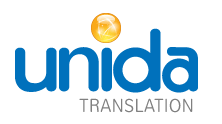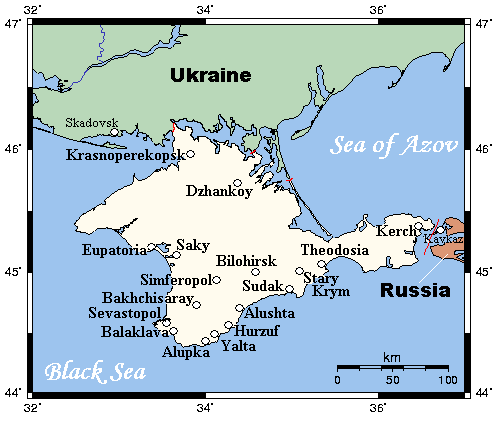Accuracy is the cornerstone of quality in professional translation. Translators are expected to convert words and meaning from one language to another with precision–preserving the original’s intent, tone, and form. Yet, there are times when accuracy alone isn’t enough. In fact, being “too accurate” can sometimes lead to problems, especially when a translation involves politically sensitive content.
Language, as much as it is a tool for communication, also reflects political, cultural, and historical realities. Translators working with official documents–particularly those destined for foreign embassies, government offices, or legal institutions–often encounter terms, place names, or references that go beyond linguistics. These elements can touch on unresolved geopolitical disputes, national identity, or contested territories, where a single word or phrase can carry meaning far beyond its dictionary definition.
So how should translators approach these challenges? Should they prioritize literal accuracy, or take political or legal sensitivities into account? The answer lies somewhere in between–and navigating that fine line requires sound professional judgment and an understanding of the broader context in which the translation will be used.
Fidelity to the Original: The Translator’s Core Responsibility
Professional translators strive to represent source texts faithfully. This is especially important when translating official documents like birth certificates, marriage licenses, academic transcripts, court decisions, or government-issued IDs.
In these cases, the translator’s task is not to interpret or adjust the content but to translate it exactly as written–without inserting, omitting, or altering information. If necessary, clarifications or contextual notes can be added in brackets or as footnotes, but only with the client’s consent.
Accuracy here is not only a matter of linguistic correctness, but also legal and ethical responsibility. Translated documents must mirror the original, as they often require certification, notarization, or submission to authorities expecting exact equivalence between versions. The purpose of such translations is to verify authenticity, not to reflect political viewpoints or editorial choices. Altering even minor details can result in a document being rejected, delayed, or questioned.
When Politics Becomes Part of the Translation
Despite the need for precision, translators occasionally find themselves in situations where the source material intersects with politically sensitive terminology. This is common when dealing with place names, institutions, or country designations that have changed due to political events or remain disputed in international contexts.
Examples include Taiwan, Kosovo, Crimea, and Palestine–regions whose recognition varies widely across borders. What is standard and acceptable in one country might be considered incorrect, or even illegal, in another. Translators working across these boundaries can find themselves in a difficult position: Should they reflect the geopolitical stance of the target audience? Or should they remain strictly faithful to the source?
This is where translation becomes a form of diplomacy.
Client Guidance Is Key
In translation, the client’s preferences and understanding of the document’s intended use are critical. If a document is being submitted to a foreign government or embassy, the translator needs to know whether that authority requires or expects specific terminology.
In politically sensitive cases, the client is often best positioned to assess risk. Many consulates or government offices have clear protocols regarding acceptable terms, especially place names and designations.
Therefore, it’s common–and advisable–for translators to consult clients about disputed or charged terms. If a translator has concerns about how a phrase might be received, they should communicate these clearly and professionally. However, translators should not override the client’s decisions or impose their own political filters unless the client requests it.
Navigating Ethics, Accuracy, and Legal Risk
Sometimes, the challenge is not about pleasing the client or the receiving institution. Translators may worry about their own professional or legal risks. In certain jurisdictions, even translating language that contradicts a government’s official stance, can be seen as a political act or a legal offense.
These cases are rare, but they raise important questions. Should translators be liable for the political implications of words they translate? Does strict fidelity to the source text offer legal protection?
While there is no universal answer, the prevailing view is that translators are not authors–they do not endorse the content, but simply render it into another language. As long as translators avoid editorializing, they are fulfilling their professional duty.
If a translator believes a term might pose a risk, the ethical course is to raise the concern with the client, suggest alternatives such as footnotes or neutral phrasing, and document the exchange. Transparency and clear communication help protect all parties involved.
Remaining Neutral in Sensitive Situations
Neutrality is essential in professional translation, especially when political or legal topics are involved. Translators must avoid letting their personal beliefs or political views influence their work.
When translating politically charged language, it’s important to resist the urge to soften, reinterpret, or adjust wording–even if it seems helpful. Doing so crosses the line into editing or advocacy, which is outside the translator’s role.
Why Working with Certified Professionals Matters
The complexity of translating politically sensitive content underscores why working with trained, certified professionals is critical. Translating politically sensitive material requires legal awareness, cultural context, and the ability to make precise, defensible decisions under pressure.
Certified translators follow industry best practices and ethical standards. They are trained to produce translations that meet legal, academic, and governmental requirements. This is especially vital in sensitive cases, where mistakes or assumptions could jeopardize an entire application or process.
Unida Translation provides expert translation services in over 125 languages for both official documents and informal content. Our certified translators and interpreters specialize in legal, medical, financial, governmental, and operational fields, delivering accurate and culturally appropriate results. We are proud to be certified as a Minority Business Enterprise (MBE) by the Chicago Minority Supplier Development Council, as a Minority and Women’s Business Enterprise (M/WBE) by the Indiana Department of Administration, and as a Disadvantaged Business Enterprise (DBE) by the Indiana Department of Transportation.
Contact Unida Translation today to work with certified professionals who deliver accurate, culturally informed translations that meet the highest standards of quality and precision.

